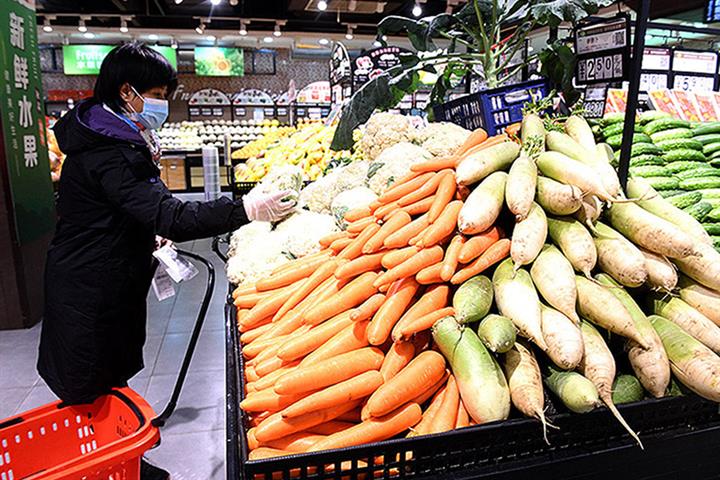 China's Inflation Falls Below 2% for First Time in Eight Months
China's Inflation Falls Below 2% for First Time in Eight Months(Yicai Global) Dec. 9 -- China's annual inflation rate slowed to less than 2 percent in November for the first time in eight months, the latest official figures showed.
The consumer price index rose 1.6 percent in November from a year earlier, according to data the National Bureau of Statistics released today, down from 2.1 percent the month before. It was the smallest gain since March’s 1.5 percent and close to the average 1.65 percent forecast of 18 chief economists polled by Yicai Global.
The CPI fell back as a result of several factors including Covid-19 outbreaks, seasonal factors, and a high base in the same period of last year, NBS Chief Statistician Dong Lijuan said in a statement posted on the bureau's website.
Food price inflation was 3.7 percent, down from 7 percent in October, as the cost of pork eased further as more state reserves were released into the market and vegetable prices fell. Pork was 34 percent more costly than a year ago, compared with a 52 percent annual surge in October.
Non-food inflation edged up 1.1 percent, with gasoline, diesel, and liquefied natural gas gaining at a slower pace. The non-food price rebound was limited against the backdrop of repeated Covid-19 outbreaks and weak consumption, said Wu Chaoming, vice president of the Chasing Institute.
Core CPI, which excludes food and energy, remained below 1 percent because of sufficient commodity supply, a slight lack of consumer demand, and weak consumer confidence, according to Wang Qing, chief macro analyst at Golden Credit Rating International.
This year's CPI growth will likely be around 2 percent, much lower than the upper limit of 3 percent, Wang predicted.
The producer price index, which measures the price of goods at the factory gate, fell for a second month in a row in November, dropping 1.3 percent from a year ago, NBS data showed. The chief economists had predicted a fall of 1.53 percent.
The PPI decline was mainly because manufacturing activity in the United States, Europe, and Japan contracted last month, domestic policies to ensure supply took effect, and economic recovery slowed, said Pang Ming, chief economist and research director of Jones Lang LaSalle China.
Annual PPI growth will remain negative in December, Wu said. The lower base in December last year was still at a high level, while the global economy will remain weak and the lack of demand will affect prices, Wu noted. China’s industrial firms are also in a destocking cycle, negatively impacting PPI growth, he added.
Editor: Futura Costaglione